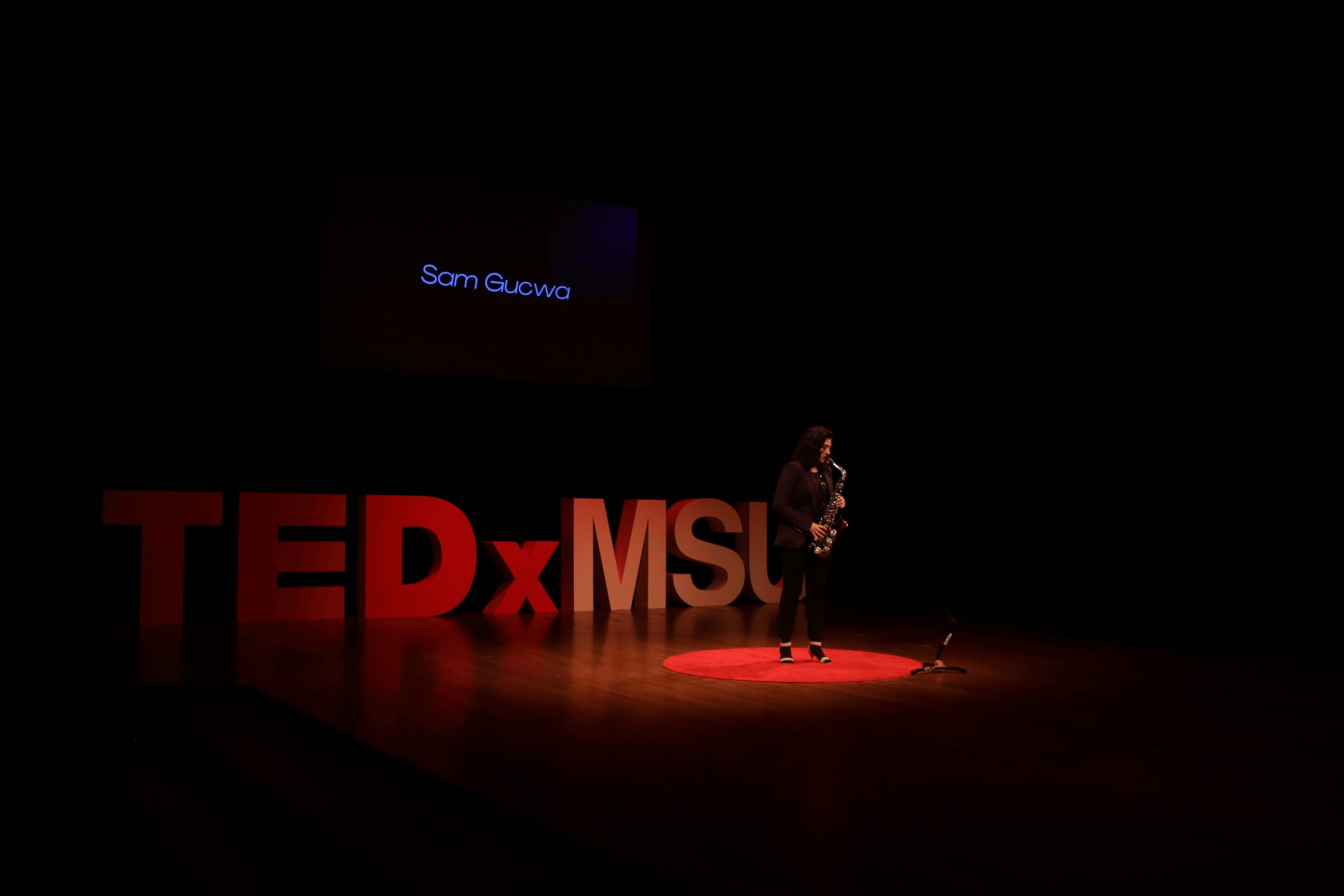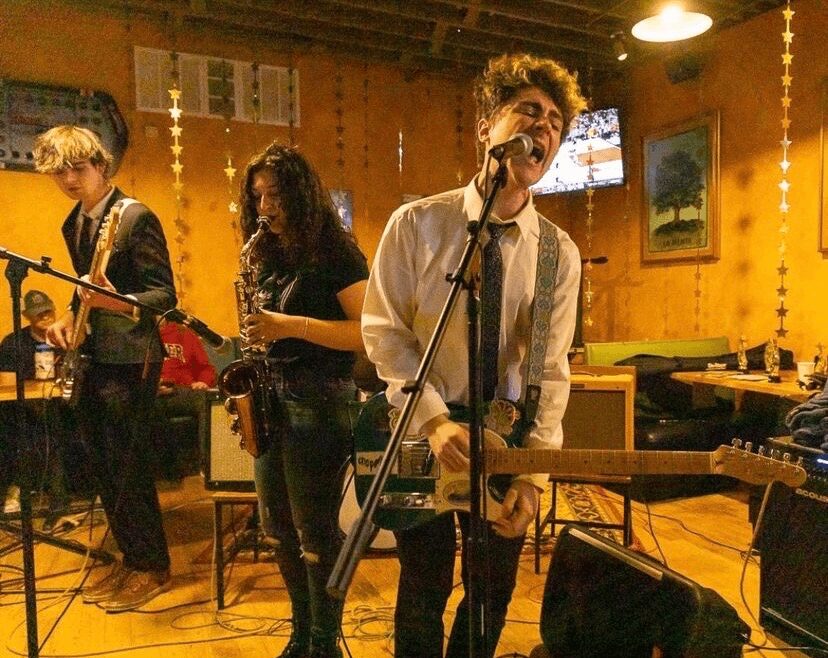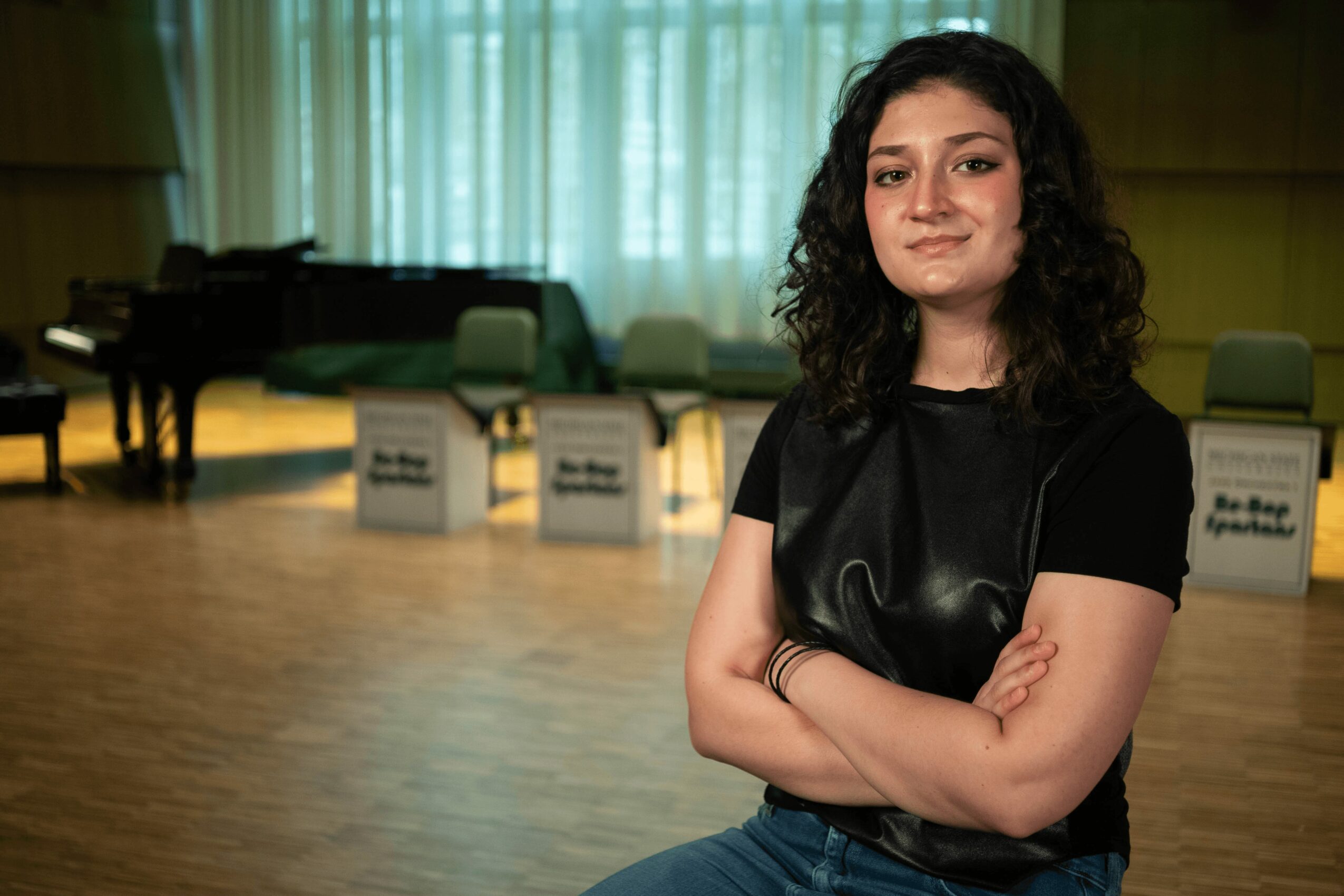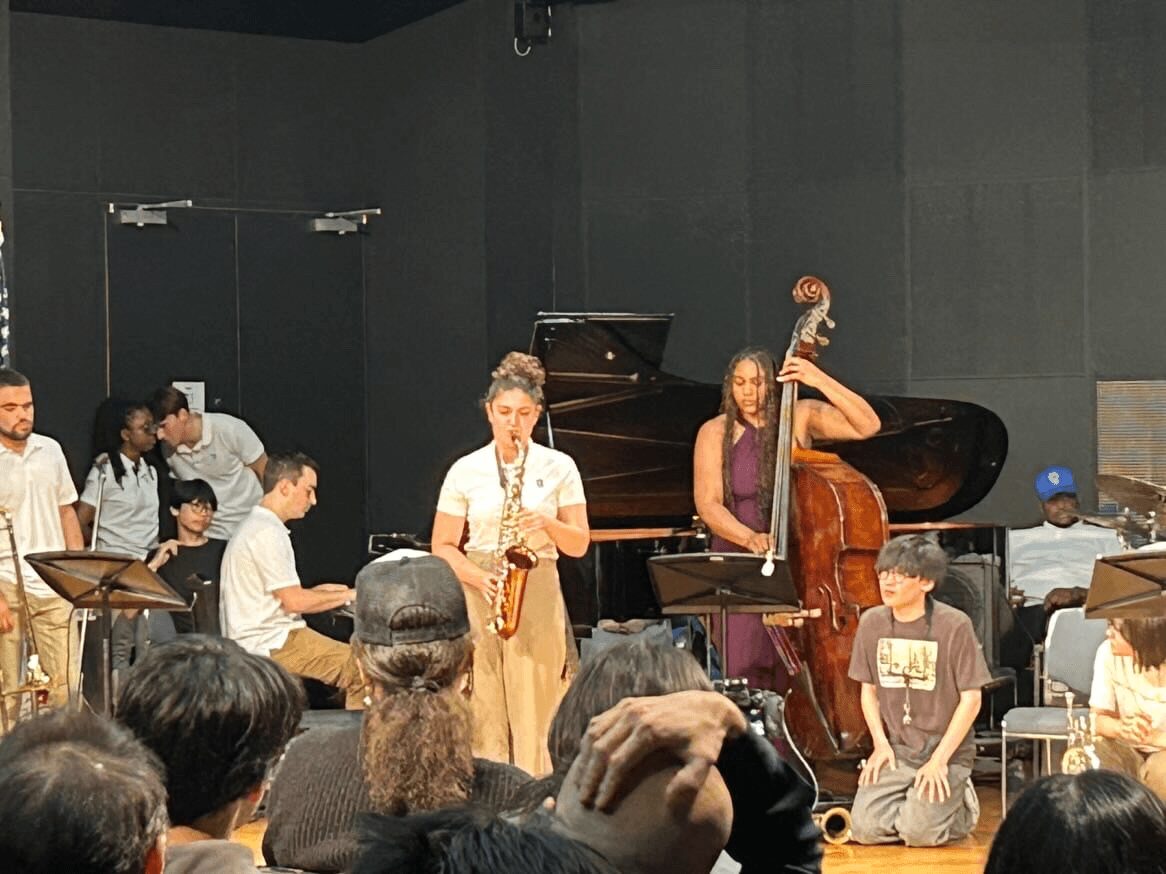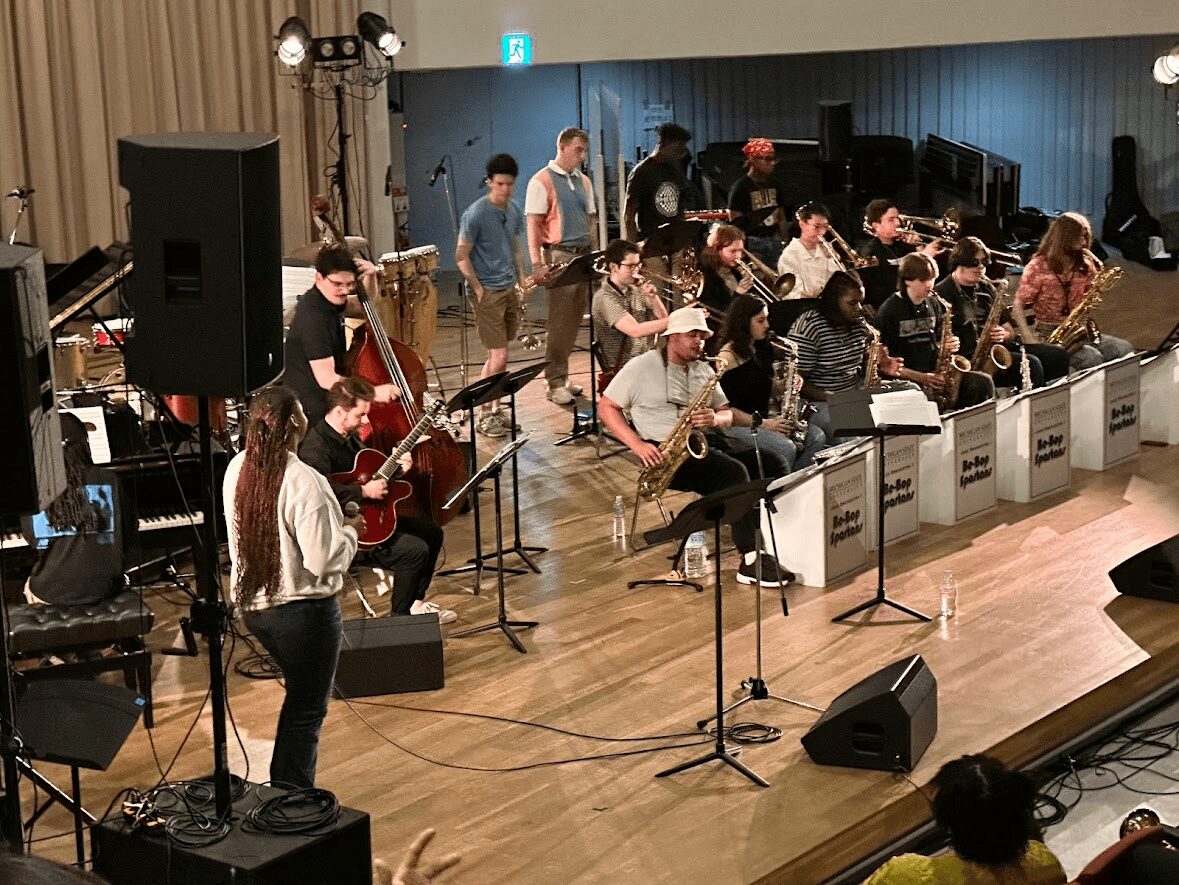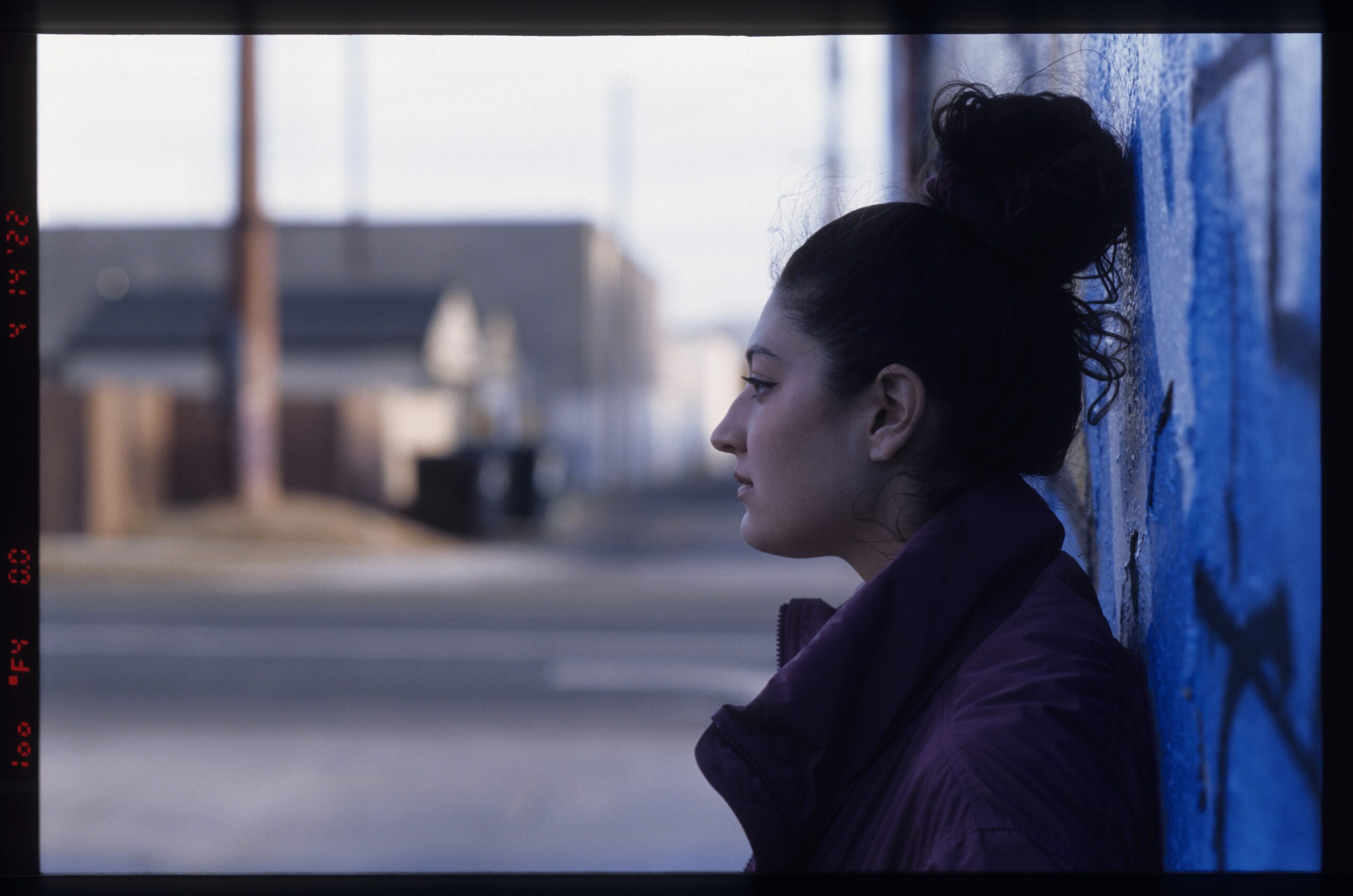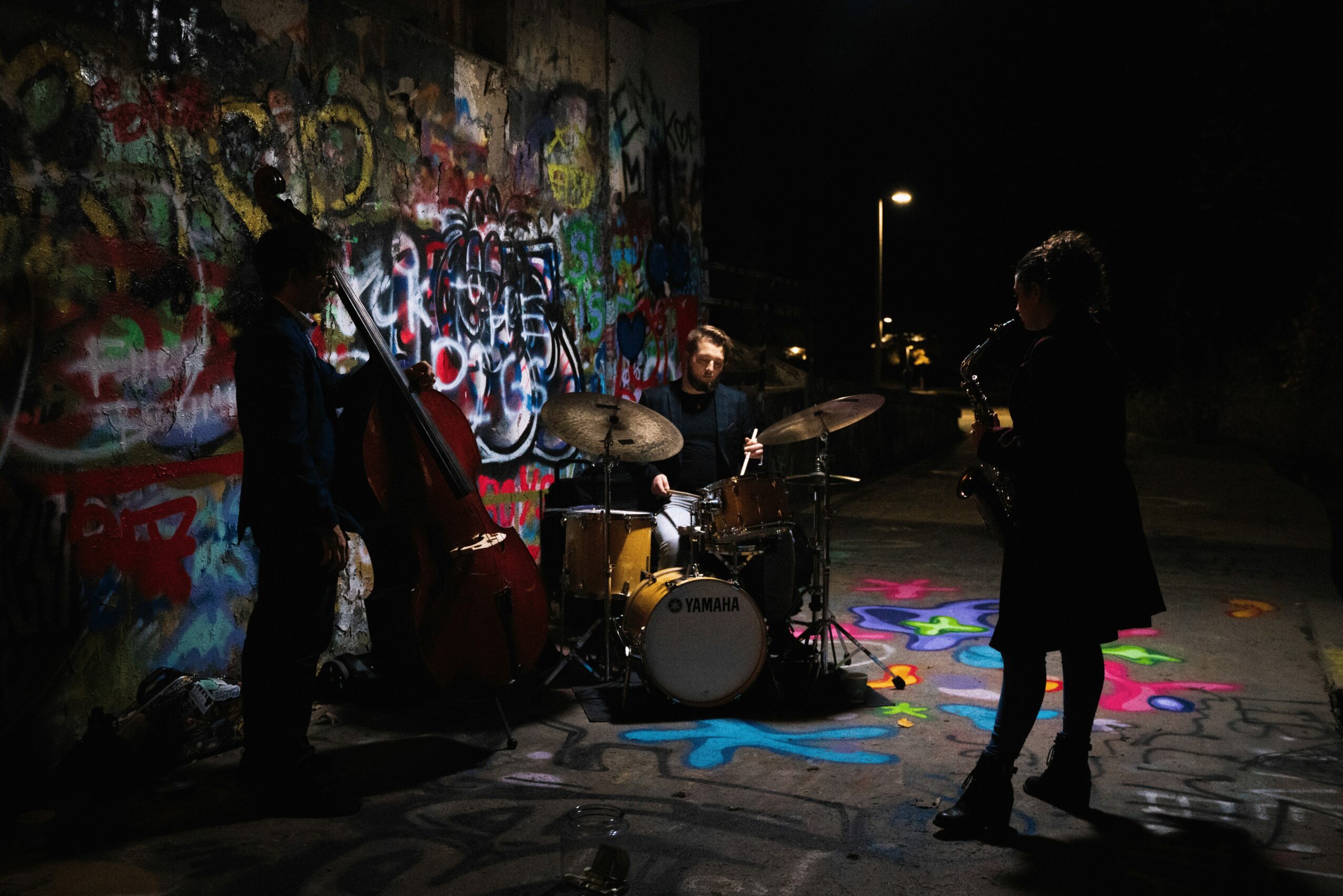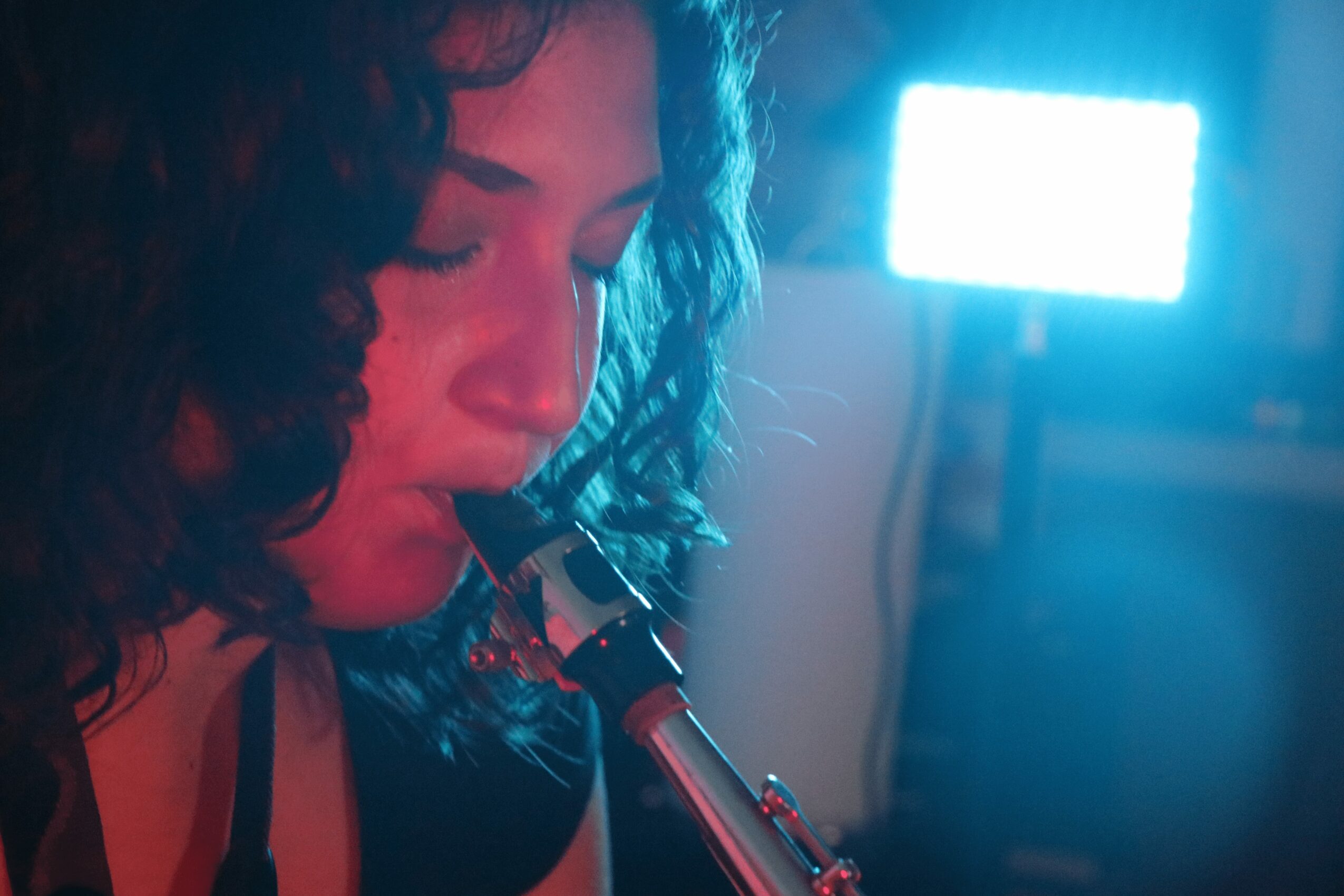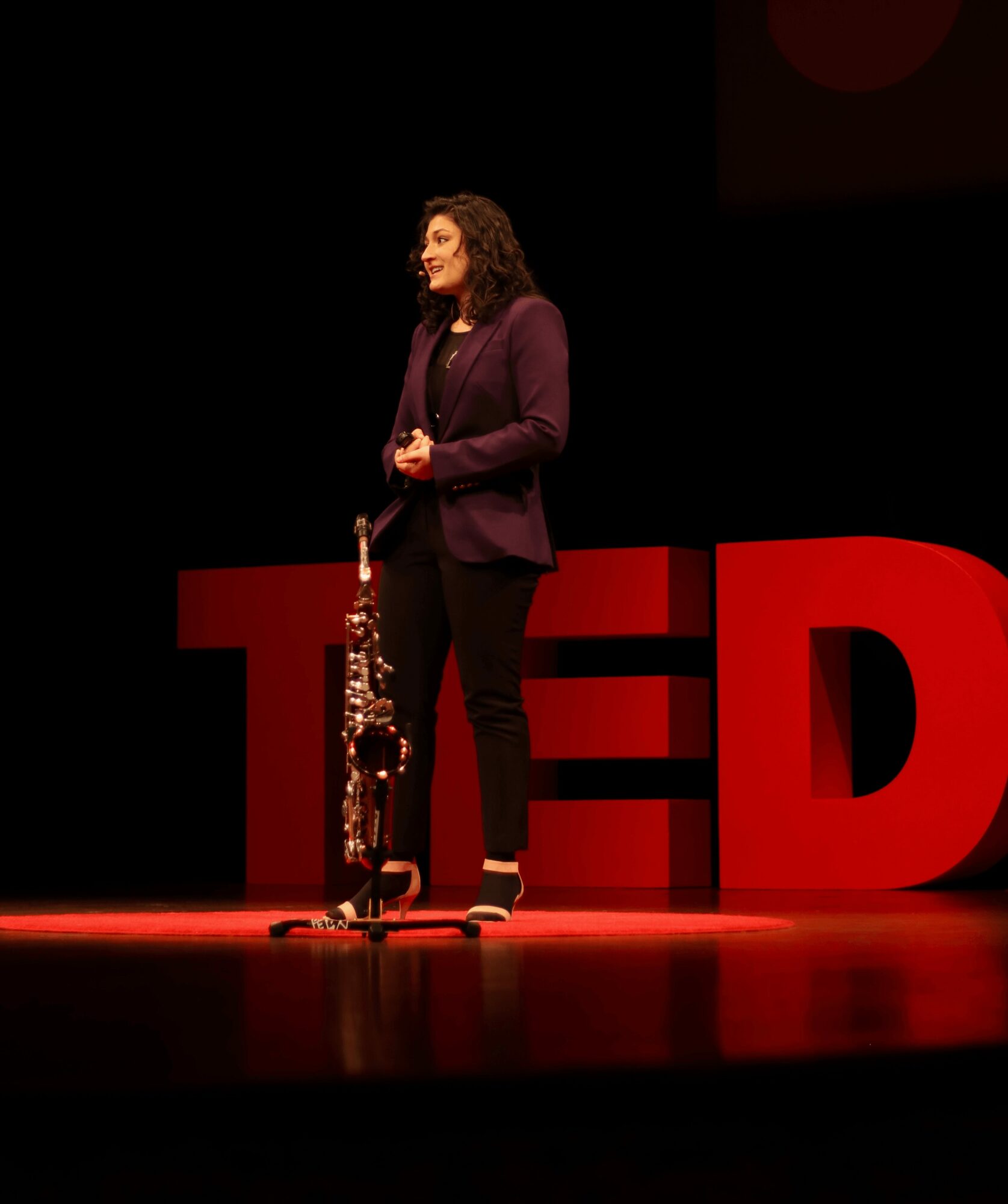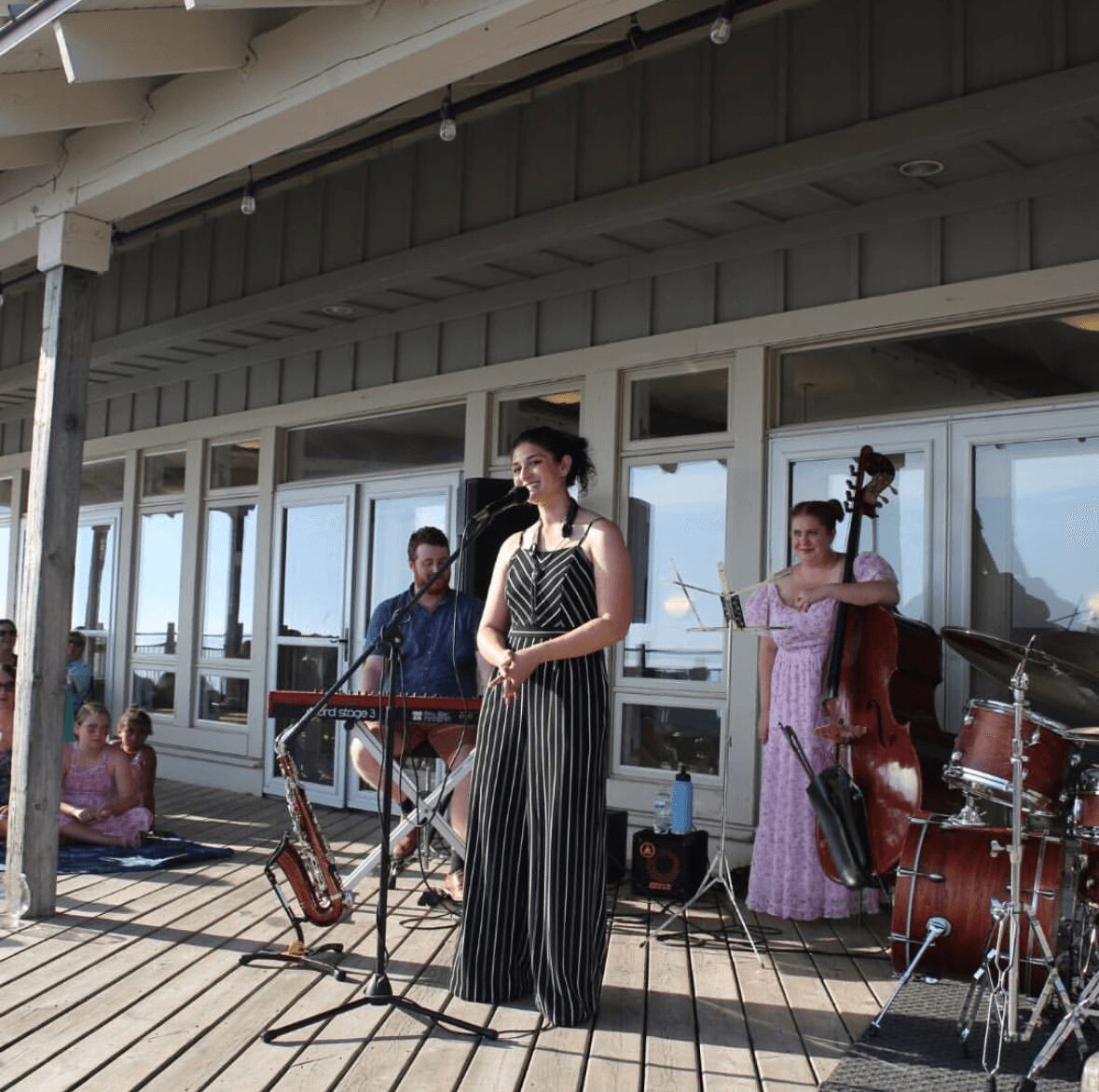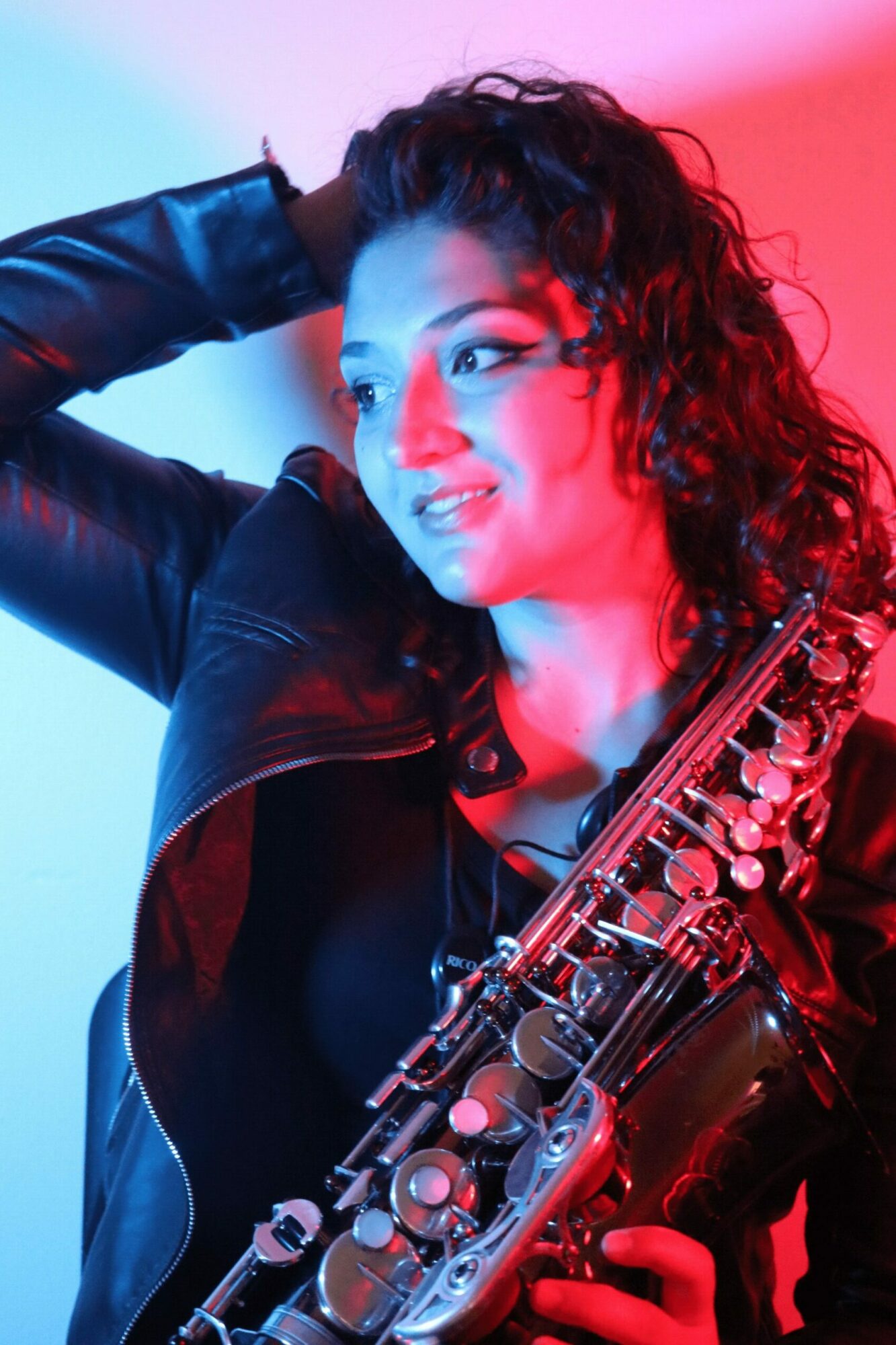
Today we’d like to introduce you to Sam Gucwa
Hi Sam, can you start by introducing yourself? We’d love to learn more about how you got to where you are today?
I grew up in the suburbs of Chicago in the Catholic school system— a bad combination for jazz education programs. My mom placed me in Young Naperville Singers in second grade, who I sang with for twelve years. YNS taught me to sight read solfège, to hear melodies in complex pieces of music. More importantly, it taught me to hold myself to a standard of musical and professional excellence and to seek communities of loving people who do the same. When I aged into the band program I picked up the French horn, then the alto saxophone. My band teacher was a short-tempered man who believed women didn’t belong on a jazz stage. My life became a 2-on-1 battle between me, him, and my own self doubt. That’s when I found bebop. I bought the Charlie Parker Omnibook and burned through pages of his solos. In those pages I found his righteous fury, his playful jabs, his confidence in the face of a culture that wasn’t ready to understand his artistry. And even though I was twelve, I felt the resemblance in my own life. Improvised music became my obsession, which my parents supported. They sent me to Interlochen’s summer program, which set the stage for my future move to Michigan. They also bought me my first saxophone, and drove me to Colorado to start my bachelor’s degree in Jazz Studies. I loved it there— I still play with Bleak Mystique and Experimental Brunch— but my university had a similar mentality to my old band teacher, so I transferred out and became the third generation of Spartan Gucwas. Now I perform with the bebop Spartans, the Gathering Orchestra, Michael Dease… I even did a show with Brian Vander Ark! Now as I finish my degree I’m writing my first album and performing as the leader of my own band.
I’m sure it wasn’t obstacle-free, but would you say the journey has been fairly smooth so far?
Leaving Colorado was difficult. On paper it was the life I had fantasized about through high school, and in so many ways I loved it. I was the on-call Bari sax at the Boulder Philharmonic at 19, I was writing charts for indie rock bands and playing with half the big bands in the city (and spending every weekend in the mountains!) but I was also struggling badly with the social politics of a small music school. Professors called me a diversity token, band mates commented on my figure more than my playing, and no matter how many gigs I earned or accomplishments I reached, I could never shake the fear that I was treated badly because I played badly. I auditioned at Michigan State and spent months after my acceptance agonizing over whether I should leave everything I had worked for without a promise something else was any better. But if you’re unhappy where you are, making a move, no matter where it takes you, is better than sitting still. I quietly packed my bags into my dad’s car and drove to Michigan. MSU ended up being more than I could have hoped for and a second home. I still visit Colorado. When I do I hike in the mountains, I get drinks with my old dorm mates, and I play a few shows with the musicians who’ve become my closest friends. Then I fly back to Michigan, I hike the dunes, I play Catan with my friends, and I play shows with my mentors.
Can you tell our readers more about what you do and what you think sets you apart from others?
I’m a saxophonist and woodwind doubler, which means I play flute and clarinet. One of the things that startles people when they look at my bio is my genre diversity. I’ve done orchestras, I’ve done modern and experimental music, I do big band, I do punk and fusion… it’s really a ridiculous list. Some claim it’s limiting to spread yourself across that many disciplines, but I disagree. The greatest musical innovators were interdisciplinary: Charlie Parker studied Bach, the Beatles studied south Asian folk music. Miles Davis studied boxing and applied it to his music! Lately I’ve focused my attention on bringing my favorite aspects of those disciplines to my original work, especially on my new band, Experimental Brunch, where I’m cowriting with Mitch Segura.
Where we are in life is often partly because of others. Who/what else deserves credit for how your story turned out?
Young Naperville Singers, specifically Angie Johnson and Christine Dyslin shaped me and my expectations as a musician over my twelve years with the choir. Everything I do in music is seeking out that same joy I had singing with 300 other musicians. My parents have always supported my pursuit of music, whether it’s sitting through college auditions or buying my first horn. They’ll think I’m crazy for shouting them out, but Bleak Mystique is one of the few bands that brings that joy I’m chasing, and they’re a big reason I keep going back to Colorado. Those guys have become my brothers. And of course, Diego Rivera and the Michigan State faculty. I applied to MSU in high school and when I called him to say I was moving to Colorado instead he said, “That’s okay, we accept transfer students!” I thought it was an odd comment at the time, but two years later when he saw me in the audience at Cliff Bells, he welcomed me back with, “Sam! I heard your parents moved in state, you should come on home!” Prof Rivera knew I belonged here even before I did. He’s the reason I’m here and thriving.
Pricing:
- Hire my band! Pricing at $70/hr/musician
Contact Info:
- Website: https://Www.samgucwasax.com
- Instagram: @sams_saxophone
- Facebook: https://www.facebook.com/sam.gucwa.75?mibextid=LQQJ4d
- Youtube: https://youtube.com/@samgucwasax?si=7e5jvfGi2PX9oiCg
